
What Causes Back Pain?
Q: Dr. Nene, tell us about back pain. What does it encompass?
The world is made up of three kinds of people: those who are having back pain, those who've had back pain, and the rest who will have back pain.
Back pain is one of the top three reasons to consult a doctor worldwide. That's quite telling. It shows us how common it is.
There is often a misconception that back pain is for the rich, or for the urban, but we've done a study where tribal Indians also voted back pain as their biggest problem after infant mortality and malnutrition. Back pain is a huge problem across communities, and across profiles of people.
As a back surgeon, I define two categories of pain. The first comes from the physical structure. The pain comes from bones, joints, muscles, and ligaments. It is physical and mechanical in nature. It is not always urgent, but it is a nuisance.
The second category of pain comes from the neural system, the nervous system. It is more urgent, and so a person often needs to seek medical help.
Posture
Q: What are the implications of having bad posture?
Take sitting as an activity. Most people are either leaning toward a computer monitor, looking at their mobile, snoozing at the table, or slouching. You might feel that you're chilling in your chair, but you're actually loading your back. Most of us load our backs over days, months, and years on end, without really servicing them. We use our backs for up to eighteen hours a day, and mostly we abuse them.
There's almost nothing that you do functionally where your back remains straight. That's where posture comes in. If you load your back in a way that it was not designed to take loads, it's gonna wear out faster. Posture is a neutral state in which your body takes loads.
Denne historien er fra May 2022-utgaven av Heartfulness eMagazine.
Start din 7-dagers gratis prøveperiode på Magzter GOLD for å få tilgang til tusenvis av utvalgte premiumhistorier og 9000+ magasiner og aviser.
Allerede abonnent ? Logg på
Denne historien er fra May 2022-utgaven av Heartfulness eMagazine.
Start din 7-dagers gratis prøveperiode på Magzter GOLD for å få tilgang til tusenvis av utvalgte premiumhistorier og 9000+ magasiner og aviser.
Allerede abonnent? Logg på
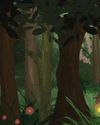
A Flower from THE HEAVENS
November 14 is Children's Day. This year, SARA BUBBER brings to you a world of forests, magical flowers, festivals, and some animals you may have never seen.

Meeting Phenomenal Women
The author, CHITRA BANERJEE DIVAKARUNI, is interviewed here by TARA KHANDELWAL and MICHELLE D'COSTA about her books on mythology, like The Palace of Illusions, which is a retelling of the Mahabharata from Draupadi's point of view, and The Forest of Enchantments, which is a retelling of the Ramayana, from the eyes of Sita. And there's The Last Queen, which is about Rani Jindan's life.
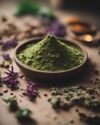
HERBAL TOOTH POWDERS: Rediscovering Ayurveda's Natural Secrets
SRAVAN BANDA presents a natural herbal tooth powder, offering a holistic approach to oral hygiene, harnessing the power of medicinal herbs.

The Dance of Light and Shadow Lessons from the Dolomites
ALAIN DESVIGNE explores the Dolomites, listed as a UNESCO World Heritage Site in 2009.
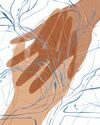
FINDING OUR WAY
A Polynesian Explorer's Journey of Discovery
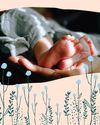
The First Imprint: Understanding PTSD
CHRISTIANNA DEICHMANN is the Director of Education at the Association for Pre and Perinatal Psychology and Health (APPPAH), where she educates both professionals and parents on fostering the most nurturing environments for welcoming new life into the world.

The Tipping Point
In this final conversation of the series, J. FREDERICK ARMENT continues to talk with CHRISTINE JONES about promoting peace in the world.

UNLOCK YOUR POTENTIAL
Take The Brighter Minds Path To Cognitive Development

The Intrinsic Goodness of the Heart
DAAJI shares some thoughts on heartfelt acceptance and all it has to offer. He says, \"It is the heart's intrinsic goodness that allows us to accept everything as part of us.
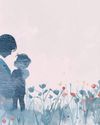
How Does Fear Affect Our Roles as Mothers? - Neelam Shivhare explores some of the great ancient texts of India on motherhood, compares the behavior of Kaikayi and Yashoda
Neelam Shivhare explores some of the great ancient texts of India on motherhood, compares the behavior of Kaikayi and Yashoda, and realizes the importance of removing fear from our hearts in order to nurture our children.For young women like myself, who are future mothers, I trust we are on the path of becoming selfaware and brutally honest with ourselves. We are creative beings, never forgetting the gifts with which we have been bestowed— the love and tenderness, natural instincts, and intuition to feel the right path. It all lies in the mysterious meanderings of the heart. Are we really listening to our hearts, or confusing the bombarding information on social media with reality?